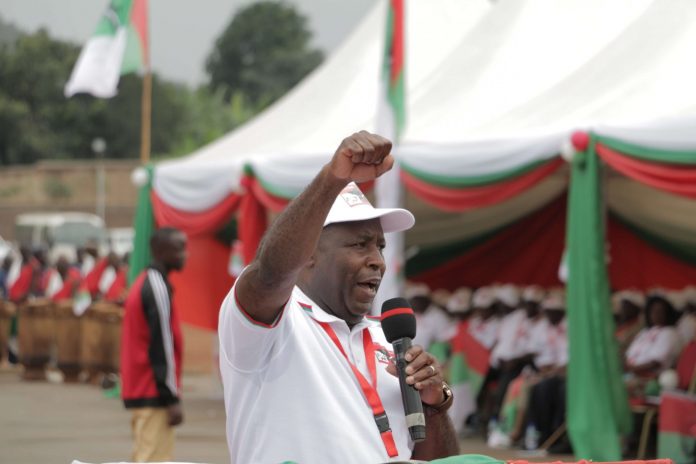
Early this week Burundi’s ruling party CNDD FDD won the majority of the senate seats according to the provisional results announced by the country’s Independent Electoral Commission (CENI).
The provisional results released by CENI shows that the ruling party CNDD-FDD won 34 seats out of the 36 leaving two seats that will be occupied by UPRONA and CNL political parties respectively.
“In addition to the 36 senates already voted for there will be 3 more seats added from the ethnic group of Twa which will be made of 2 male and one female so senate chamber will be made up of 23 men, and 16 women which makes up a total of 39 senators”, said the chairman of CENI Pierre Claver Kazihise.
The election of senators were conducted countrywide through the local representatives who elected the candidates contesting for the seats, each of the 18 provinces had 2 representatives from the two ethnic groups of Hutu and Tutsi.
This is the first time the country has financed its own election after introducing a basket fund for citizens to contribute towards the elections early 2018.
This came after the European Union and the United States of America suspended direct aid to Burundi government after reports indicated gross human rights violations in the country that took place since 2015 when the late former president Pierre Nkurunziza vied for a third term in the office.
Despite the government announcing the elections being conducted peacefully in a more transparent manner, the leading opposition party CNL raised concern over increased harassment of its members and being arbitrary arrested.
“The appeal lodged to the Constitutional Court for the 2020 elections does not give anyone the right to call the leaders, activists, and supporters of the CNL enemies of Burundi,” said Agathon Rwasa the leader of CNL political party.
“We are against the practices of labelling, dividing, mounting and marginalizing on the basis of differences in opinion. This is the scourge that the current government from the top down should first eradicate since it is this very deficiency that has always been the cause of the chronic crisis in Burundi,” he added.
Burundi had undergone decades of civil war that led to thousands of Burundians losing their lives and hundreds of thousands fleeing to the neighboring countries, with the latest crisis coming from 2015 after the late former president Pierre Nkurunziza vied for another term in the office.
Opposition members said that his move violated the country’s constitution and the Arusha agreement that limit a president to run for more than two terms in the office, however the ruling party supporters argued that his first term didn’t count as he wasn’t directly elected by the citizens.
The country’s constitutional court and the East African Court of Justice ruled in favor of the ruling party indicating that the term was legal and never violated the country’s constitution.
Currently hundreds of Burundians are being repatriated from neighboring Tanzania after fleeing the country, under the tripartite agreement between Burundi, Tanzania and the United Nations High Commissioner for Refugees (UNHCR).
With the new government and new leadership under President Evariste Ndayishimye, many await to see how the country will evolve from the economic turbulences and maintaining peace and stability for sustainable development.
